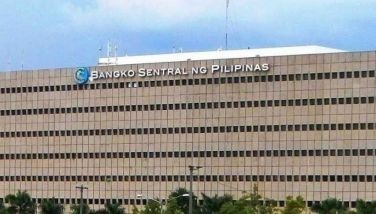IATA warns vs private investment in airport infra development
MANILA, Philippines - The International Air Transport Association (IATA) has cautioned countries in Asia Pacific including the Philippines about too much private investment in the development of airport infrastructure to support demand growth in the region.
IATA director general and chief executive officer Tony Tyler said governments in Asia Pacific should take a prudent approach to private investment in airport development projects as the trend emerging across the region particularly the Philippines, Vietnam, Indonesia, and even Korea are all considering the participation of private investors.
“I am not advocating for or against private participation. But there have been enough mistakes made when engaging the private sector in airport development. These should not be repeated,” Tyler warned.
When governments work with private investors to develop infrastructure, he pointed out that these governments should establish an effective economic and service-level regulatory framework to ensure that the national interest is well protected.
“That means ensuring that air connectivity is both cost-effective and efficient,” he said.
The IATA chief cited the case in Delhi Airport where the 46-percent concession fee is making the airport unaffordable for airlines.
Despite several appeals from the industry, the Airport Economic Regulatory Authority approved an increase of 346 percent.
“Private sector participation was able to build a great hub facility. But the framework for economic regulation is not sufficiently supporting the long-term need for cost-efficient connectivity to fuel economic growth,” Tyler added.
He also noted that when the Hong Kong government looked at airport privatization in 2003 to 2004, the conclusion was to keep Hong Kong International Airport fully under government ownership as the best way to ensure that it delivered maximum benefit to the Hong Kong economy.
The Aquino administration is in the midst of building up the country’s airport infrastructure by constructing new airports and renovating old airports in different parts of the country.
For one, national flag carrier Philippine Airlines that is owned by tobacco and airline magnate Lucio Tan and diversified conglomerate San Miguel Corp. is looking at putting up a new airport near Manila as an alternative to the congested Ninoy Aquino International Airport (NAIA).
PAL is set to build the new international airport in a 2,000 hectare property to accommodate its refleeting program where it intends to acquire 100 new aircraft. So far it has inked a $10 billion contract for the acquisition of about 65 Airbus aircraft.
IATA also urged Asia- Pacific aviation leaders to focus on airport and air traffic management infrastructure as the region’s demand for connectivity continues to grow.
“Aviation is a vital part of Asia’s economy, supporting 24 million jobs and nearly half-a-trillion dollars of gross domestic product,” he said.
Likewise, IATA also pushed cross-border regional thinking for the development of Asia-Pacific’s Air Traffic Management (ATM) infrastructure.
- Latest
- Trending
































